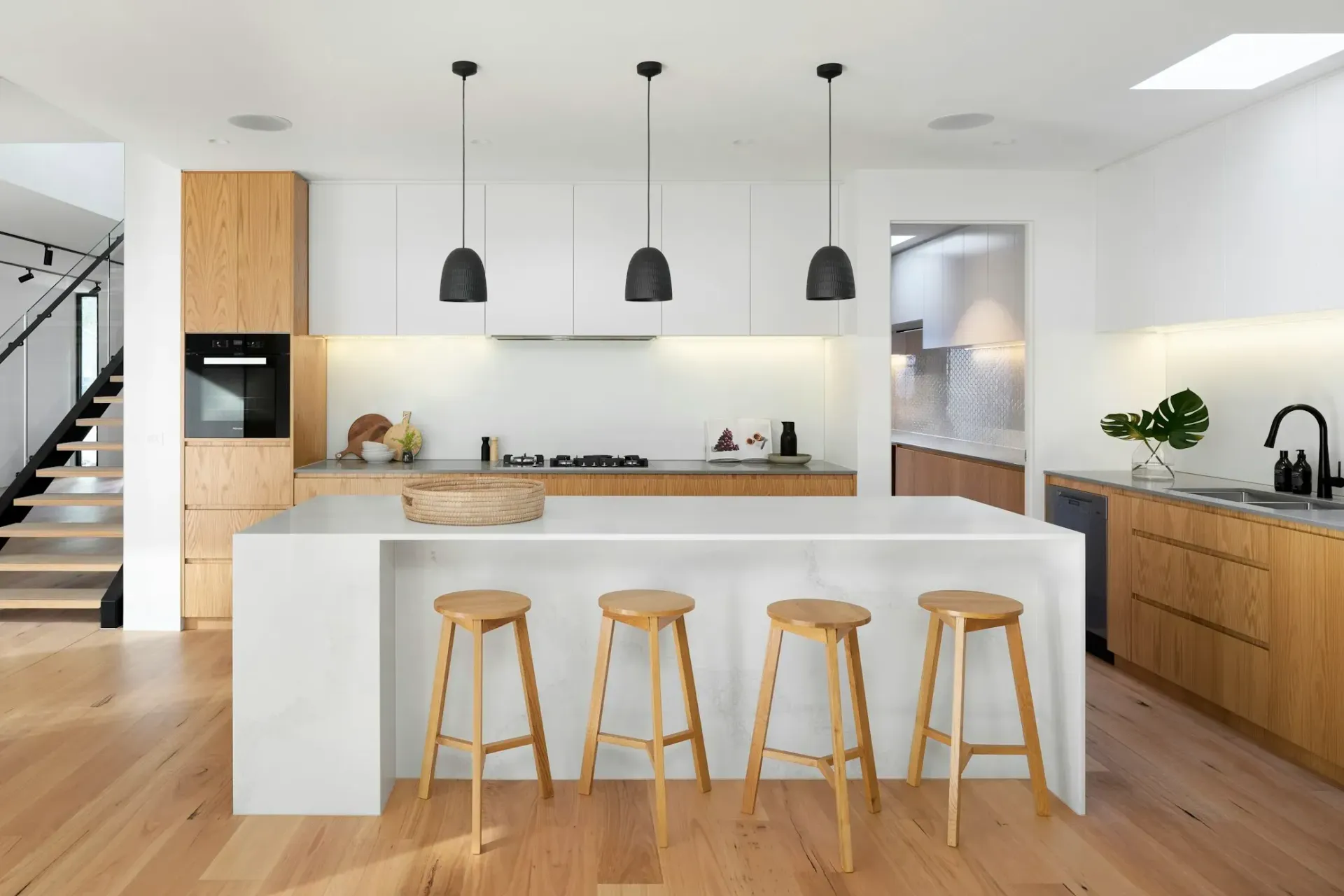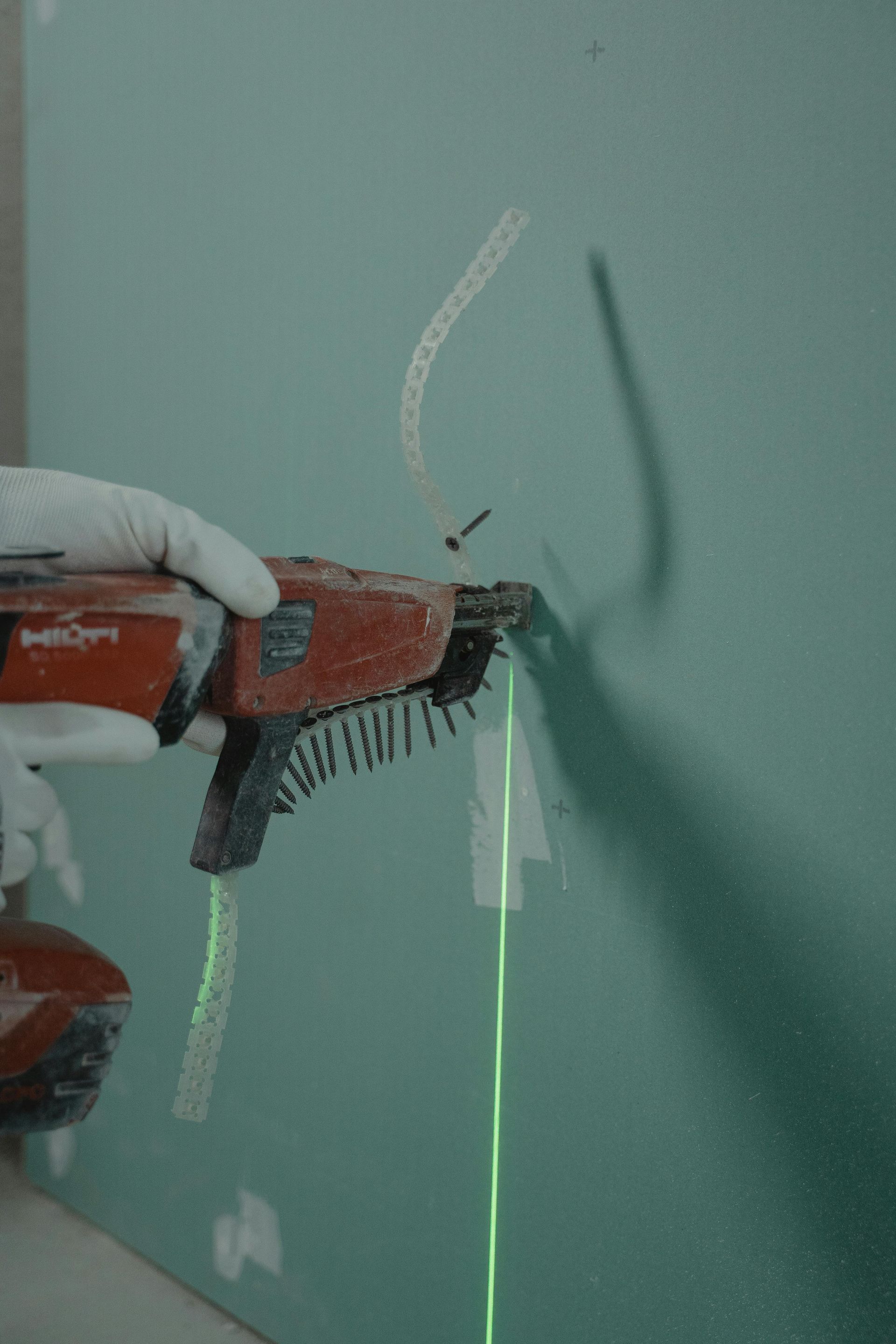Call Us
Call Us

Average Cost to Remodel a Kitchen
Remodeling your kitchen is one of the best ways to boost your home’s value and create a space that fits your style and needs. But before you jump into the project, you probably want to know: “What’s the real cost of a kitchen remodel?” The answer isn’t simple. Kitchen remodeling costs can vary a lot depending on factors like the size of your kitchen, the materials you pick, and whether you hire a contractor or tackle some of the work yourself.
In this blog, we’ll break down the average cost of a kitchen remodel, explain what drives those costs up, and share tips on how to stay within budget. Whether you’re planning a few updates or a complete renovation, knowing what to expect will help you make smart decisions.
Factors That Affect Kitchen Remodel Costs
Size of the Kitchen
The size of your kitchen plays a huge role in the total cost. Larger kitchens naturally need more materials and labor, which increases the price. Smaller kitchens will cost less, but certain upgrades or high-end finishes can still add up.
Materials and Finishes
The materials you choose have a big impact on the cost. Opting for budget-friendly options like laminate countertops or standard cabinets will keep your costs lower. But if you go for premium finishes like granite countertops, custom cabinetry, or hardwood flooring, expect the price to rise significantly.
Labor Costs
Labor is another major factor, and it can vary depending on where you live and the complexity of the job. Hiring a skilled contractor might come at a higher rate, but it’s worth the investment to ensure the work is done right. Areas with higher living costs typically have higher labor rates.
Appliance Upgrades
If you’re upgrading your appliances, this will also impact the budget. Choosing energy-efficient models or luxury brands will increase your overall cost. Basic models, on the other hand, can help you save.
Plumbing and Electrical Work
If your remodel involves moving plumbing or updating electrical systems, expect to pay more. These tasks require skilled professionals, and depending on the extent of the work, they can add a significant amount to your final bill.
Average Kitchen Remodel Cost Breakdown
The cost of a kitchen remodel can vary depending on the scope of the project. Here’s a general breakdown of what you can expect based on the size and level of the remodel:
Small Kitchen Remodel
For a smaller kitchen, you’re looking at a range of $10,000 to $15,000. This typically includes updating countertops, painting cabinets, installing a new backsplash, and replacing basic appliances. It’s a great option if you want a fresh look without major structural changes. You can save even more by reusing cabinets and appliances.
Mid-Range Kitchen Remodel
A mid-range kitchen remodel usually falls between $20,000 and $50,000. This can include replacing cabinets, upgrading to granite or quartz countertops, installing new appliances, and improving lighting and flooring. It often involves more customization and higher-end finishes, but not a complete overhaul.
High-End Kitchen Remodel
For a high-end remodel, the cost can easily reach $50,000 to $100,000 or more. This level of renovation involves custom cabinetry, top-of-the-line appliances, luxury countertops like marble, premium flooring, and possibly changing the kitchen layout or expanding the space. It’s all about luxury and personalization at this level.
DIY Kitchen Remodel vs Hiring a Contractor
When planning a kitchen remodel, you’ll need to decide whether to do it yourself or hire a contractor. Each option has its pros and cons, and the right choice depends on your budget, skill level, and the complexity of the remodel.
DIY Kitchen Remodel
Going the DIY route can save you a lot of money, especially on labor costs. You have full control over the process and can decide where to cut costs. Small tasks like painting cabinets, installing a backsplash, or replacing fixtures are ideal for DIY. However, it’s important to know your limits. Complex tasks like plumbing, electrical work, or installing heavy countertops should be left to professionals, as mistakes can lead to costly repairs later on.
Hiring a Contractor
If you’re not comfortable taking on the remodel yourself, hiring a professional contractor is the safer bet. Contractors bring experience, knowledge, and access to better resources. They’ll also help you avoid costly mistakes and keep the project on track. While it does cost more upfront, you’re paying for peace of mind and a higher-quality finish. Just make sure to vet contractors thoroughly to avoid any issues down the line.
How to Save Money on a Kitchen Remodel
Remodeling a kitchen can get expensive, but there are several ways to cut costs without sacrificing quality. Here are some smart strategies to help you stay within your budget:
Reuse Existing Materials
If your cabinets are still in good shape, consider repainting or refinishing them instead of replacing them. The same goes for countertops, sinks, or appliances. Reusing what you already have can significantly reduce your expenses.
Shop for Sales and Discounts
Keep an eye out for sales or clearance items at home improvement stores. Many stores offer big discounts on appliances, cabinets, or materials at different times of the year. You can also check for gently used materials at places like Habitat for Humanity ReStores.
Plan Efficiently
Changing the layout of your kitchen, like moving plumbing or electrical outlets, can drive up costs quickly. Keeping the same layout while upgrading the surfaces and finishes is one of the best ways to save money. Plan your remodel carefully and avoid unnecessary changes.
Do Some of the Work Yourself
Even if you’re hiring a contractor for the big tasks, there are still areas where you can save by doing things yourself. Painting, demo work, or even simple installations can be handled without professional help, lowering your labor costs.
What to Expect During a Kitchen Remodel
Remodeling your kitchen is exciting, but it’s also a process that comes with a few disruptions. Knowing what to expect can help you plan better and avoid surprises along the way.
Timeline for Each Phase
A typical kitchen remodel can take anywhere from 6 to 12 weeks, depending on the scope of the project. Here’s a general breakdown of each phase:
- Planning and Design: (2–4 weeks) This includes working out the layout, choosing materials, and getting necessary permits.
- Demolition: (1 week) This involves removing old cabinets, countertops, flooring, and sometimes even walls.
- Construction: (4–8 weeks) This is where the real work happens—installing new cabinetry, countertops, appliances, plumbing, and electrical work.
- Final Touches: (1–2 weeks) Finishing up with painting, installing fixtures, and any final adjustments.
Common Unexpected Costs
Even with the best planning, unexpected costs can pop up. Hidden water damage, outdated wiring, or structural issues can add to the bill. It’s always a good idea to set aside an extra 10–15% of your budget to cover these surprises.
Is a Kitchen Remodel Worth the Investment?
A kitchen remodel can be a big financial commitment, but is it worth the investment? In most cases, the answer is yes. Here’s why:
Return on Investment (ROI)
On average, homeowners can expect to recoup about 60-80% of their kitchen remodeling costs when they sell their home. The exact return depends on the scale of the remodel and the housing market in your area. A well-done kitchen remodel not only increases the home’s value but also makes it more attractive to potential buyers, speeding up the sale.
Long-Term Value
Beyond the immediate resale value, a kitchen remodel can also improve your daily life. A functional, updated kitchen can make cooking and entertaining more enjoyable, and energy-efficient appliances can help lower utility bills. The comfort and convenience of a remodeled kitchen can offer long-term benefits that go beyond just dollars and cents.
Conclusion
A kitchen remodel is a big investment, but with the right planning, it can transform your home and improve your day-to-day life. Whether you're updating a small kitchen or planning a complete renovation, knowing the costs and factors involved helps you make informed decisions. By reusing materials, shopping smart, and avoiding unnecessary changes, you can keep your remodel within budget without compromising on quality.
If you’re ready to start your kitchen remodel, consider working with VX2 Contracting. They offer professional kitchen renovation services, ensuring the job is done right from start to finish. With years of experience and a commitment to quality, VX2 Contracting can help you create the kitchen you’ve always dreamed of. Contact them today for a consultation and take the first step toward your kitchen transformation.
FAQs
What is the most expensive part of a kitchen remodel?
Typically, cabinets are the most expensive part of a kitchen remodel. Custom cabinets can cost a significant portion of your budget, especially if you choose high-end materials and finishes. Appliances and countertops can also drive up the cost if you opt for premium options.
How long does a kitchen remodel take?
A full kitchen remodel usually takes 6 to 12 weeks, depending on the scope of the project. Smaller renovations may take less time, while larger or more complex remodels may stretch the timeline.
Can you remodel a kitchen for $10,000?
It’s possible, but you’ll need to keep things simple and budget-friendly. A $10,000 remodel may include repainting cabinets, updating hardware, replacing appliances with budget options, and making cosmetic changes like new light fixtures or a backsplash.
How can I remodel my kitchen on a budget?
To keep costs down, reuse existing materials where possible, shop for discounts, and do some of the work yourself. Avoid major changes like relocating plumbing or electrical, which can add significant costs.
How much does it cost to remodel a kitchen in 2024?
In 2024, the average kitchen remodel cost ranges from $20,000 to $50,000, depending on the size and complexity of the project. High-end remodels can exceed $100,000, while smaller, budget-friendly updates can be done for under $20,000.
You might also like
OUR SERVICES
All Rights Reserved | LocalEyes


